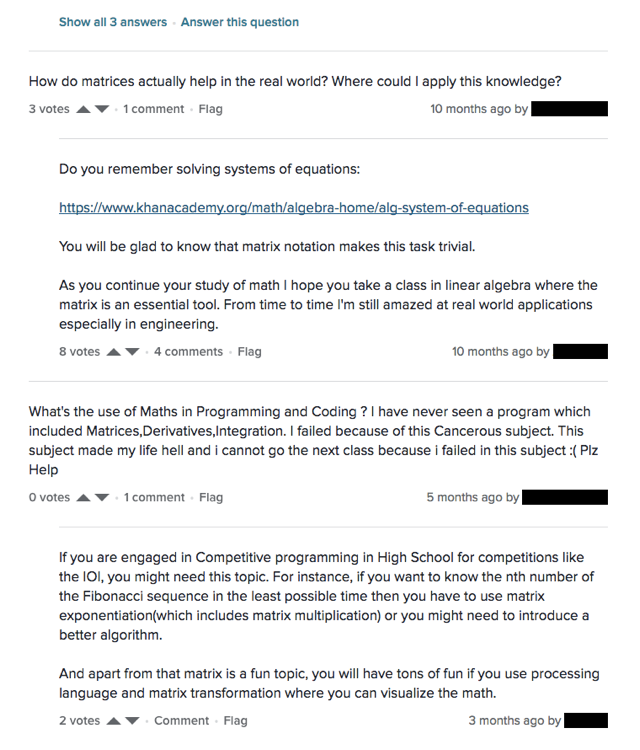Day Eight
A two day gap? I can explain.
The time has come to understand what a convolutional neural network actually is, and I've been watching a couple of videos that attempt to explain just that. The problem, however, is that the creators of most neural network explainer videos make the perfectly reasonable assumption that their viewers know what a derivative is and how matrix multiplication works.
Like I said, a perfectly reasonable assumption. I, of course, failed Calculus II twice and am clueless about both those things.
So after a couple of days spent trying unsuccessfully to sneak around this barrier, off to Khan Academy I go.
Every time I hit up Khan Academy, I fall into the pit of endless prerequisites. Matrices are part of the precalculus module, which starts with trigonometric equations and identities, so I guess I should start there. The very first lesson though is an intro to arcsine, which is part of inverse trigonometry, but I don't remember anything about regular trigonometry, so I guess I should start there? While I'm at it, I didn't completely grasp the log loss function used in that Kaggle competition I did, so maybe I should start there...
This time around, I'm adopting a new approach: as little math as possible. I'm sure that math will make me a better data scientist, but I'm also sure that what will not make me a better data scientist is doing three months of differential equations and giving up.
So straight to matrices then.
One hour later, I've learned about fancy pants mathematics terms like augmented matrice and reduced row-echelon form and gaussian elimination. Can't wait to casually sprinkle these into the conversation at my next cocktail party.
A little deeper into the course, I come across this revealing little comment chain:

Not to shit all over the people who, I'm sure, were genuinely trying to help, but their answers to the question "how do matrices help in the real world" basically amounted to:
- They make other kinds of algebra easier
- You can find Fibonacci numbers quickly
- Competitive programming
- Engineering or something
- Matrices are fun
Which I promise you is not very reassuring to a struggling calculus student (I was/am one). A better response might have been hey did you know that you can use matrices to teach a computer to see? I promise you that Tony Stark knows how to do matrix multiplication and if you ever want the chance to fly around in a titanium suit powered by an arc reactor when you grow up, you'd better learn to do the same.
And just like that, I learned how to multiply matrices. It's party time!
